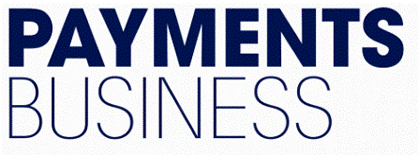 By Derek Wood
By Derek Wood
For many finance leaders “blockchain” and “cryptocurrency” are some of the latest buzzwords floating around. However, new research1 reveals that it might be time we get more familiar with them; 50 per cent of Canadian finance leaders surveyed by Robert Half Finance & Accounting say that cryptocurrency will become at least somewhat common for business transactions in the next five years. Respondents also noted that blockchain and cryptocurrency will drive the need for finance professionals to:
- Expand skill sets to adapt to new accounting and finance technologies (53 per cent);
- Collaborate more with IT departments (31 per cent); and
- Increase the need for specialized accounting (e.g. tax and forensic accounting) (30 per cent).
While 28 per cent of respondents said blockchain and cryptocurrency won’t impact accounting and finance until they become government regulated, there’s no better time to learn about these rising FinTech terms.
What are they?
Wikipedia offers definitions of both terms. Blockchain “is a growing list of records, called blocks, which are linked using cryptography”. Cryptocurrency “is a digital asset designed to work as a medium of exchange that uses strong cryptography to secure financial transactions, control the creation of additional units and verify the transfer of assets”.
Cryptocurrencies are a kind of digital currency, virtual currency or alternative currency. Blockchain is the platform that makes cryptocurrency possible. With this technology, it can be applied to accounting and finance functions and cut out processes that would normally be incredibly time-consuming. For example, with blockchain technology, ID verification becomes a quick process rather than a task that can take days to complete.
Digital currency already disrupting business
Cryptocurrency is already impacting business transactions and will likely become more common in the years to come. As cryptocurrency gains in popularity we’re already seeing some retailers accept it as a form of payment. In the U.S., travel sites like Expedia are already accepting it. Overseas, more retailers allow it as a form of payment; bitcoin ATMs are even popping up.
Canadian stance
Because Canada’s federal government is already in campaign mode ahead of the 2019 election, publishing the final cryptocurrency or “virtual currency” regulations has effectively been put on hold. This leaves the current regulatory model2 in place until well into 2020, as there is an additional 12-month period after publication for any new regulations to take effect. Until then, finance and accounting departments are advised to arm themselves with knowledge and train professionals on how to use blockchain technology, even without the use of cryptocurrency.
Gearing up
Companies shouldn’t wait for the regulatory picture to become clearer. It is crucial to take steps now towards understanding how blockchain and cryptocurrency (or any new and evolving digital innovation) could affect the business and how to prepare.
Finance professionals interested in entering the blockchain space should consider looking for institutions or professional groups and programmes that offer blockchain certifications. For example, IBM offers accessible courses and resources for professionals who are interested in blockchain basics. Some higher education institutions are starting to offer courses that cover the topic. In addition, professionals working in this space will need to prove they are able to collaborate and communicate well with others, especially outside of their specialties.
Hiring professionals who can handle the changes blockchain and cryptocurrency will bring is becoming increasingly important. Here are a few tips for finance leaders on finding blockchain talent:
- Facilitate collaboration. Encourage communication with IT departments for seamless integration of the new technologies. IT colleagues may also be able to share best practices and provide additional training;
- Relax the job requirements. Blockchain expertise is hard to find but can be developed. When hiring for roles requiring this knowledge consider focusing on candidates who will have a short learning curves and can be trained.
- Hire individuals who match 70 to 80 per cent of the job requirements and train up. It may not be uncommon to see candidates with engineering or computer science experience.
- When hiring for an open role, consider applicants with great soft skills—it’s harder to teach those—and focus training on technical skills.
- Accelerate the hiring process. If you find a candidate you want to hire, move fast. Enlist the help of a specialized recruiting firm that has access to candidates you may not be able to find on your own and can assist with your hiring efforts; and
- Offer professional development. Whether it’s in-house training or external courses, allow employees to spend time on skills development courses that would most benefit your company’s bottom line. Some industry associations may offer relevant training.
Digital transformation job loss concerns
Some finance professionals share the same fears about blockchain that they do about artificial intelligence or any other type of digital transformation: that technology has the potential to replace them and take their jobs. However, according to Robert Half’s report, Benchmarking the Accounting and Finance Function3, 22 per cent of organizations in Canada said they plan to expand their accounting and finance teams due to digital transformation initiatives. There will always be a need for finance and accounting professionals: technology like blockchain can simplify certain processes and help them do their jobs.
Derek Wood is a regional manager for Robert Half Finance and Accounting. Robert Half (www.roberthalf.ca) is a leading global specialized staffing firm. The company has more than 300 staffing locations worldwide. For career and management advice, follow our blog at roberthalf.ca/blog.
1 Robert Half, “How Blockchain and Cryptocurrency Are Impacting Accounting and Finance Departments in Canada”, study, August 14, 2018.
2 Government of Canada, “Regulations Amending Certain Regulations Made Under the Proceeds of Crime (Money Laundering) and Terrorist Financing Act, 2018”, Canada Gazette, Part I, Volume 152, Number 23, June 9, 2018.
3 Robert Half, “Benchmarking the Accounting and Finance Function”, study, June 2018.




